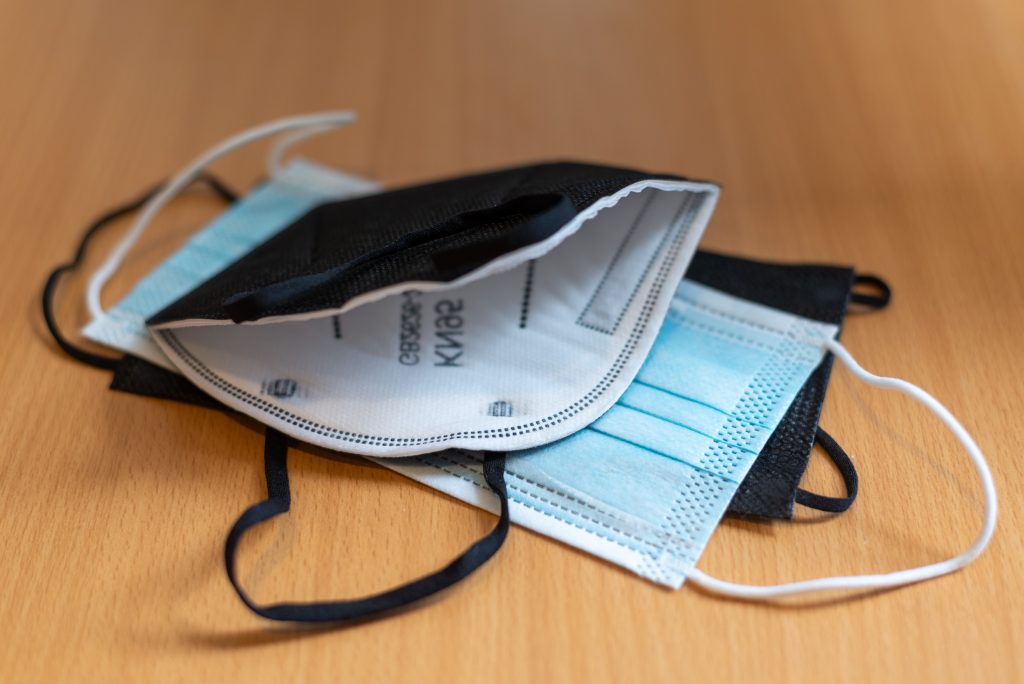For the first time since fall 2020, Binghamton University students can take off their masks in most buildings on campus.
Beginning Saturday, BU’s indoor mask mandate will be lifted regardless of vaccination status, with the exception of inside health care facilities and buses. The decision comes a month after SUNY had revised its COVID-19 guidance policies to allow individual campuses to consider lifting the mandate, in consultation with local health departments.
A March 24 B-Line Addition cited low transmission rates in Broome County and on campus as cause for the decision. Currently, the rolling average 14-day positivity rate on campus is 0.76 percent, slightly above the SUNY number of 0.53 percent but far below the New York state number of 1.80 percent.
A March 2 B-Line had announced the mandate would be lifted if the county remained in the low or medium transmission category by March 26, or five days after spring break. Broome County remains listed as a medium-transmission county by the Centers for Disease Control and Prevention (CDC), one of only seven out of the state’s 62 counties that are not at low transmission.
The University is the latest of a string of SUNY campuses lifting their mandates, joining SUNY Cortland, SUNY Oswego, Stony Brook University, the University at Buffalo and others. SUNY Brockport and SUNY Oswego had lifted their mandate only for those that had received COVID-19 vaccinations and boosters.
Though Broome County is at a higher risk for COVID-19 transmission than Monroe and Oswego County, the University is also testing at a higher rate than the two campuses. In addition, BU reported a vaccination rate of over 99 percent for students and 94 percent for faculty, as of the beginning of this semester.
While students are no longer required to wear masks in the classroom, the B-Line encouraged students to abide by the wishes of their professors, regardless of whether punitive measures are in place.
“Students who choose not to wear a mask in these instances will not be penalized; however, we hope that they will comply with these requests as a way to show respect and compassion for individuals who may have underlying health issues or have vulnerable family members,” the B-Line reads. “It is a minor inconvenience that promotes the sense of community that has always characterized our University.”
On Thursday, the University had sent an email to faculty encouraging them to discuss the issue with their students. Some faculty continued to ask students to wear masks, while others are forming their decision as they speak to their students.
Benjamin Fordham, a professor in the political science department, said he had discussed the lifting of the mandate with one of his classes. Fordham said he said he would take any student feedback into account.
“I may tell people in our class that [their] candid feelings about this could make a difference,” Fordham said. “If I have a lot of immunocompromised people in the class, or there’s other evidence that lifting this thing is going to present special problems, maybe I would still keep it in effect in our class. But I don’t want to do that if nobody really wants it.”
Fordham said he would also seek to provide communication channels outside of class, such as email, for students who may be uncomfortable sharing their opinions to contact him through.
Students expressed varying sentiment about the lifting of the mandate, which was announced two days prior to the decision date proposed in the earlier B-Line. Luke Blumenberg, an undeclared freshman, said he felt the decision was made too early, with the effect of spring break still too difficult to tell.
“I was surprised at how early they lifted it,” Blumenberg said. “I thought they were going to wait another week. I don’t think it was in the best taste to do it that early.”
Other students, like Eva Vazquez, a junior majoring in Spanish, said they did not take issue with the lifting of the mandate, but hoped students would continue to abide by any concerns of their professors. Vazquez said she would take off her mask based on the comfort levels of those around her.
“It’ll depend, probably if I’m walking with my friends I will,” Vazquez said. “I work at the Fleishman Center [for Career and Professional Development], so if I’m face-to-face with the person in an appointment I might wear it, especially if they’re wearing it and they’re not comfortable with me not doing [so]. So basically however everyone else feels, if they are comfortable or not.”
According to the B-Line, the University will monitor transmission rates and discuss the issue with health officials should transmission rates rise to levels that require reconsideration of the mandate.



